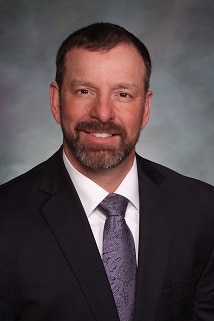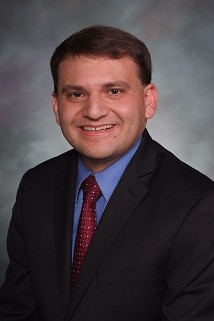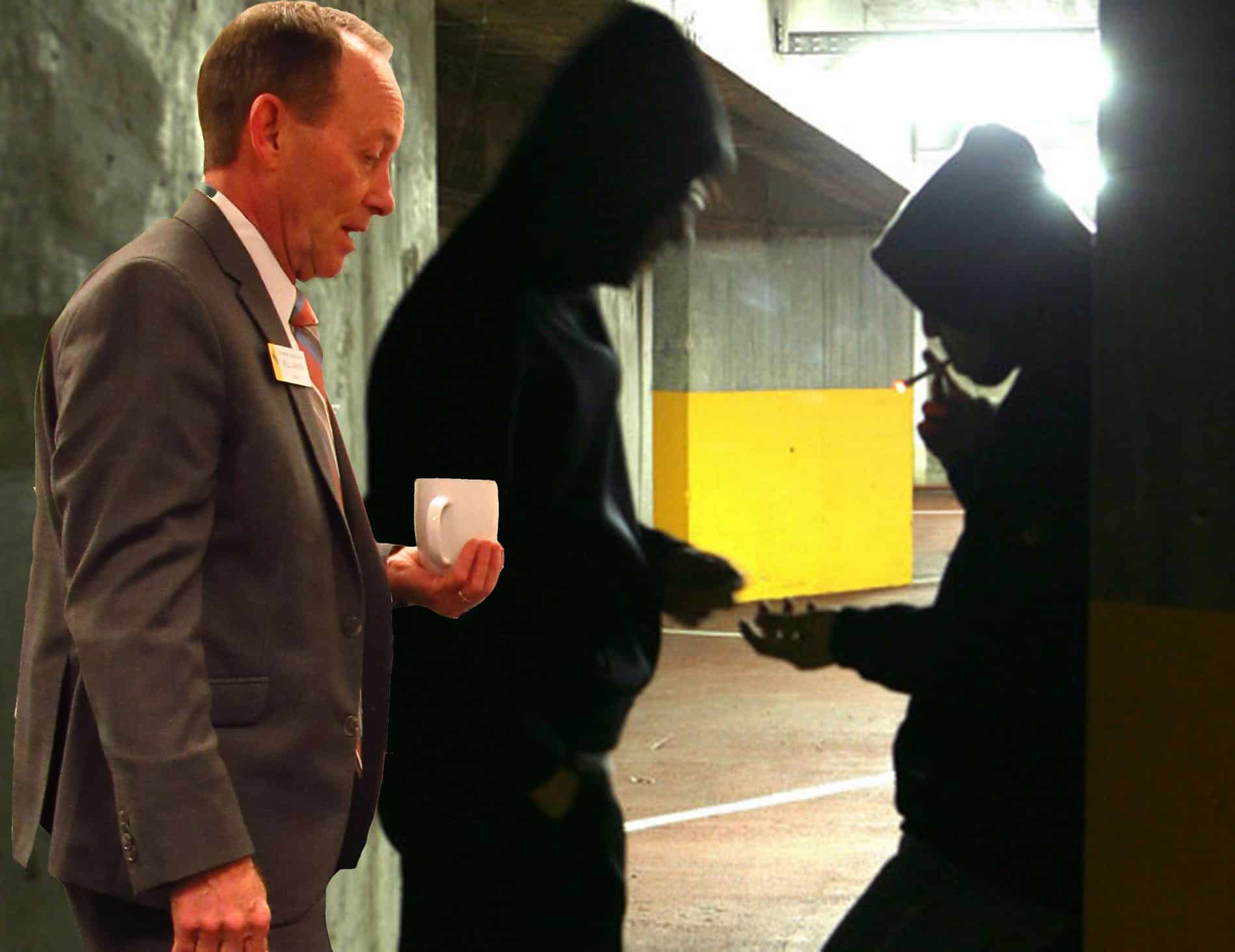Medicaid work requirements bill faces an uncertain future in the Wyoming House
A bill advanced in the House on Friday to force Medicaid recipients in Wyoming to prove that they work or have their healthcare taken away.
But it advanced by a hair-thin margin. Without securing at least one more vote, lawmakers and lobbyists pushing for Medicaid work requirements will not prevail when the bill reaches its final reading next Tuesday.
Senate File 144 advanced Friday on a 30 – 28 vote. According to legislative rules, bills can pass their first of three readings with a simple majority of lawmakers present.
But for a bill to pass its third and final reading, it must receive a majority vote of the entire chamber. That means the Medicaid work requirements bill will need one more vote than it received Friday—a total of 31—to finally pass the House.
Rep. Lloyd Larsen (R-Lander), who spoke against the bill Friday, was not present on the House floor for the vote. Rep. David Northrup (R-Powell), was also absent.
Two legislators who initially voted “No” on Friday—Reps. Jim Blackburn (R-Cheyenne) and Tom Crank (R-Kemmerer)—switched their votes at the last second to ensure the bill’s advancement.
Lobbyists on both sides of the issue will be trying to press their cases with legislators before the final vote Tuesday.
SF-144 has already passed the Senate.
A powerful opponent
One of the bill’s most outspoken opponents is House Majority Floor Leader Eric Barlow (R-Gillette).
“Taking someone who’s already down and pushing them further down? That’s not what we do in my community.”
In an impassioned speech on Friday, Barlow said people on Medicaid in Wyoming are in tough places in their lives for any number of reasons.
“But I would suggest to you that the worst thing we could do is take away their healthcare,” Barlow said.

Rep. Eric Barlow
“You want to push them further down? Do that. But taking someone who’s already down and pushing them further down? That’s not what we do in my community.”
Barlow also pointed out that people who become dis-enrolled from Medicaid for failing to meet work requirements would rely on emergency rooms for healthcare instead. This would increase the burden on Wyoming’s hospitals and likely cause insurance premiums to increase.
Furthermore, Barlow said, the bill does not take into account people with chronic illnesses or mental health problems who need continual treatment.
Lawsuit threat
SF-144 would require the Wyoming Department of Health to negotiate a waiver with the federal government to adopt Medicaid work requirements.
The bill states that a Medicaid recipient would have to put in 20 hours a week either working, in a job training program, enrolled in school, or volunteering with a community agency. It would exempt some people, like children, parents of young children, the elderly, and disabled folks.
If a Medicaid recipient fails to prove they have met the requirements, they would be stripped of benefits for six months.
The rewards of work requirements
SF-144’s backers in the House claimed on Friday that work requirements would have a positive effect on Medicaid recipients.
“When I volunteer, I’ll tell you, I feel so good coming out of that experience.”
“This is not a work requirement so much as it is a work encouragement,” said Rep. Dan Laursen (R-Powell).
Rep. Tyler Lindholm (R-Sundance), who’s originally from Canada, suggested that people on Medicaid could fulfill their work requirements by joining the military.

Rep. Chuck Gray
Rep. Chuck Gray (R-Casper)—whose wealthy father, Jan Charles Gray, gave him a radio station and donated nearly $20,000 to his 2018 campaign—said that the requirements’ volunteer provision would encourage people to serve their communities.
“When I volunteer, I’ll tell you, I feel so good coming out of that experience,” Gray said. “I feel confident, I feel part of the community I’m in.”
Rep. Dan Zwonitzer (R-Cheyenne) pointed out that forcing someone to volunteer under the threat of taking away their healthcare doesn’t exactly sound like “volunteering.”
Lawsuit threat
Seven U.S. states have gone through the process to implement work requirements for Medicaid, while others have applications pending. But, speaking on Friday against SF-144, Rep. Larsen pointed out that all of those states have expanded Medicaid, except Wisconsin.
Wyoming shot down a bill earlier this session that would have both expanded Medicaid and implemented work requirements.
Larsen explained that one state, Kentucky, is being sued over its work requirements. He said that, in response, the federal Centers for Medicare and Medicaid Services have signaled that they will not approve further work requirement waivers for states that have not expanded Medicaid.
Behind the folksy story: A think tank lobbyist
SF-144’s sponsor is Sen. Larry Hicks (R-Baggs). When Hicks outlined his bill for the Senate Labor and Health Committee several weeks ago, he told a tale about shopping at his local grocery store and standing in line behind a “healthy young man” who used food stamps.
After talking with the clerk about how “freeloaders” are taking advantage of the system, Hicks recalled, he had the bright idea to force work requirements on people who get Medicaid.
Who knows whether Hicks’ folksy-sounding story was true? Regardless, the person on Friday working the House lobby for votes on SF-144 had a much shinier corporate gleam.
 Dave Owen is a Utah-based lobbyist who had come to Cheyenne on behalf of the Opportunity Solutions Project, a right-wing think tank. OSP is a Florida-based outfit that wrote the “model legislation” upon which SF-144 is based. OSP has pushed Medicaid work requirements in Mississippi, Kentucky, Iowa, and other states.
Dave Owen is a Utah-based lobbyist who had come to Cheyenne on behalf of the Opportunity Solutions Project, a right-wing think tank. OSP is a Florida-based outfit that wrote the “model legislation” upon which SF-144 is based. OSP has pushed Medicaid work requirements in Mississippi, Kentucky, Iowa, and other states.
Owen told Better Wyoming he was peeved by Friday’s vote.
“There were people who supported us in committee who reversed on the floor,” he said. “But it’s never over until it’s over, so you just keep working.”
Failing our low-wage workers
On the other side, Equality State Policy Center Executive Director Chris Merrill is working against OSP, Owen, and SF-144.
On Friday, Merrill distributed a fact sheet to lawmakers explaining that SF-144 “unfairly targets the most economically vulnerable members of our communities by creating new and unnecessary bureaucratic hurdles.”
Merrill pointed out that people undergoing treatment for cancer and other diseases, people in recovery, and people who depend on medications to help manage mental illnesses could lose their health coverage for failure to fill out the new paperwork on time.
In essence, Merrill said, SF-144 is not based on data, research, or input from experts on Medicaid benefits. Instead, it is “founded on an incorrect assumption: that so-called ‘able-bodied’ people are not working due to lack of motivation. It does nothing to address the real problem: that the low-wage labor market is failing our low-wage workers” in Wyoming.






